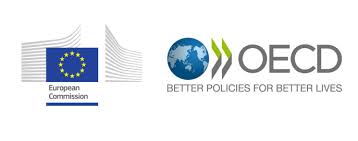The OECD Centre for Entrepreneurship, SMEs, Regions and Cities undertakes a biennial assessment of inclusive entrepreneurship policies and programmes in each of the 27 EU Member States with support from the Directorate-General for Employment, Social Affairs and Inclusion of the European Commission
These assessments are done in collaboration with a network of inclusive entrepreneurship experts across the EU. More information on the Inclusive Entrepreneurship Programme can be found here: https://www.oecd.org/cfe/smes/inclusive-entrepreneurship/
Inclusive entrepreneurship policies aim to ensure that all people, regardless of their personal characteristics and background, have an opportunity to start and run their own businesses.
Prof. Francisco Liñán and Inmaculada Jaén, E&I members, together with José Fernández-Serrano, have been the experts to elaborate the country assessment for Spain all through this research programme. The country notes for Spain (and the other EU countries) can be found here: https://www.oecd.org/cfe/smes/Inclusive-Entrepreneurship-Policies-Country-Assessment-Notes.htm

The characterisation of the policy frameworks describes the approach taken to support entrepreneurship for women, immigrants, youth, seniors and the unemployed in each Member State. It identifies whether policies are implemented by national, regional and/or local governments for each group and whether there is an entrepreneurship strategy for each group with clear objectives and targets. In addition, it considers whether there is regular monitoring and evaluation activities to track interventions, measure their effectiveness and feed learnings back into policy design.
Entrepreneurship schemes
The assessments also examine the extent to which entrepreneurship schemes (e.g. entrepreneurship training, coaching and mentoring, microfinance) effectively support business creation by women, immigrants, youth, seniors and the unemployed. Both dedicated approaches and general support schemes are considered. While dedicated approaches can have greater impacts since they are typically designed to address the barriers faced by the target clients, general schemes can also be effective for supporting entrepreneurs from disadvantaged and under-represented groups. The assessments consider the following nine issues:
1. Tailored: Are public programmes tailored for the target group?
2. Consultation: Are the targeted entrepreneurs consulted during the design of programmes?
3. Outreach: Are appropriate outreach methods used for different target groups?
4. Delivery: Are specialist organisations used to deliver programmes?
5. Take-up: Does the support have high take-up among target group?
6. Scale: Is the scale of available support sufficient?
7. Outcome: Does evaluation evidence show a positive impact?
8. Integrated: Is the programme linked to other types of support (e.g. training and finance)?
9. Links: Are tailored entrepreneurship link to general support programmes?
There is a great deal of diversity of entrepreneurship schemes in most countries, particularly those where both national and sub-national governments are actively involved. The assessments consider the “typical” scheme that an entrepreneur can use in the country. A focus was placed on public schemes and those funded by government even if they were delivered by non-government actors.


